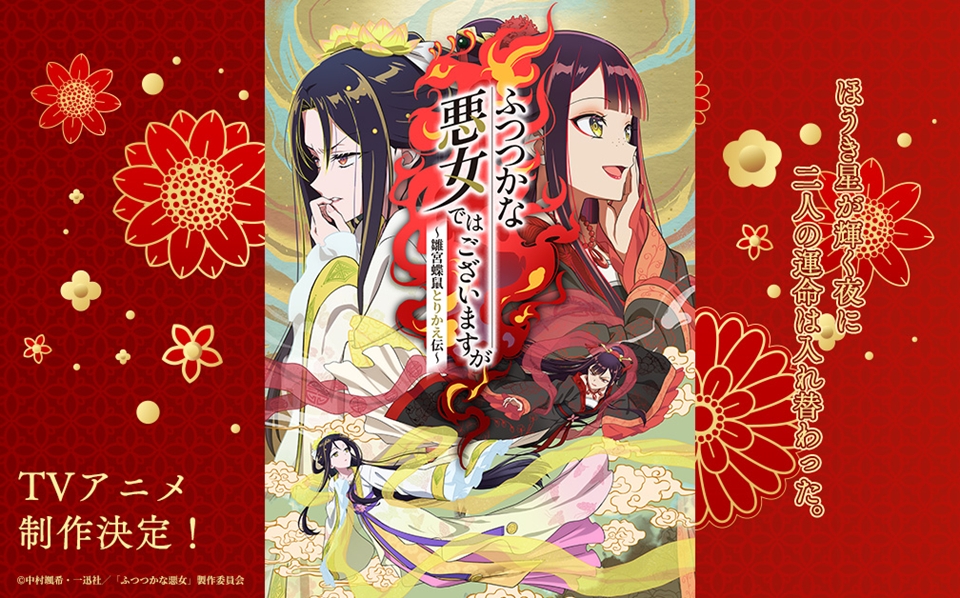This fall saw the premiere of multiple blockbusters, including new seasons of SPY x FAMILY and My Hero Academia , and the continuation of series like Gachiakuta and TOUGEN ANKI . The series I’m most curious about, though, is GNOSIA , a science fiction thriller anime based on a cult classic visual novel. It is being adapted into anime by Domerica, a studio that previously made The World Ends With You: The Animation back in 2021. That they would try their hand at another popular game makes sense, right? Well, I’ve played GNOSIA , and nothing about it makes sense. RELATED: 10 Anime Based on Visual Novels Let’s set the scene here. GNOSIA was released on the PlayStation Vita in June 2019. It garnered positive word of mouth as well as a coveted 10/10 review from IGN Japan . While it was mostly unknown in English fan communities, folks I knew who were familiar with the game spoke of it as an unfathomable miracle. And why not? GNOSIA was made by just four people and published on Vita three months after the console was discontinued. It never should have survived. When the studio Petit Depotto started making GNOSIA in 2015, it wasn’t intended solely for the Vita. As narrative designer Shigoto said in an interview with Engadget , they initially developed it for PlayStation Mobile, a software framework available for Android phones. Unfortunately, PlayStation Mobile was shut down in 2015, leading Petit Depotto to port the game to the Vita instead. By the time they finished it, the Vita itself had been discontinued as well. Image via Steam This wasn’t Petit Depotto’s first time publishing a game late in a console’s development cycle, either. Their first was Unholy Heights , a hotel management game starring Satan. These days, you can play it on your Nintendo Switch or PlayStation 4, but the game was first released worldwide for the Xbox 360, which, at that time, was just three years away from being discontinued. Why make games for consoles on their deathbeds? Per executive producer Toru Kawakatsu (nicknamed Mezukare), it was all part of their strategy. In an article via Bloomberg by Takashi Mochizuki, “Instead of pursuing a tiny sliver of the audience for huge platforms like the Switch, they could command the spotlight on the elderly Vita.” In its waning days, the Vita retained a devoted audience of players who adored visual novels, dungeon crawlers and indie games. They ate up GNOSIA with a spoon, making it “the most-downloaded Vita software for three straight weeks.” RELATED: 10 Animated Webcomic Adaptations to Add to Your Watchlist It helped that GNOSIA was a truly original game. Sure, it might not look like it at first glance. GNOSIA is modeled on the classic “werewolf” party game in which a group of people works to find killers in their midst (you may also know this game by its original name, Mafia ). That’s not so dissimilar from other “death game” adventures like Danganronpa: Trigger Happy Havoc or Your Turn to Die . But compare GNOSIA to another werewolf-inspired visual novel, Raging Loop. While Raging Loop also takes place over multiple runs, those runs are written as traditional visual novel routes with fixed solutions. GNOSIA , though, is systemic. It randomizes the victims and culprits of its werewolf games. Your stats also determine how the games play out. Rather than a choose-your-own-adventure book, it’s a one-person multiplayer game against the computer. GNOSIA does have features you’d expect from a traditional visual novel, like a true ending that ties it all together. But you can’t access that true ending just by following step-by-step instructions in a guide. You have to actually learn how to play the game and learn how to bend its somewhat luck-based systems in your favor. It’s that aspect that has me most wanting to see what an adaptation might look like. Adapting Raging Loop would be straightforward; a straight line from start to finish. How do you retell the story of a game like GNOSIA , though, when its core structure is randomized? Not to mention that every “loop” in GNOSIA is fifteen minutes or less, just a sliver of traditional visual novel route length. While I trust scriptwriter Jukki Hanada, doing the source material justice will require dexterity to pull off. GNOSIA is notable for other reasons, too. Two members of its cast use they/them pronouns, which the game treats matter-of-factly. Other characters have transformed their bodies or their selves; Shikamichi, for instance, gave himself the body of a traditional grey alien, while Otome is a super-intelligent beluga whale who happily lives alongside humans. In this way, GNOSIA follows in the footsteps of science fiction authors like Moto Hagio, who used genre in works like They Were Eleven to interrogate sexuality, gender and human nature rather than taking any of those things for granted. GNOSIA ’s success on the Vita was already an underdog story. The fact that it was later ported to Switch and announced in a 2020 Nintendo Indie World Showcase video was a step beyond. Kawakatsu said to Polygon that the port was inspired by fans who didn’t want to see their favorite game tied to a dead console. Thankfully, it was a perfect match, since the Switch had inherited the Vita’s devoted audience of visual novel fans. So many small things had to go right for GNOSIA to succeed. If Petit Depotto stopped development after the closure of PlayStation Mobile, if the game never found an audience on Vita, if it never made it to Switch, it could have been a curious failure rather than a success. The game’s experimental nature doesn’t do it any favors. Yet somehow, at every step of the way, GNOSIA found an audience that loved it for what it was. Every part of the game that could have alienated people instead became a selling point. Even today, for better or worse, there isn’t another game quite like it. RELATED: Essential Sci-Fi Anime on Crunchyroll, From Akira to Space Dandy It’s a perilous time today to be an artist. Your work either hits it big or sinks into obscurity, without much in between. That’s why original anime is so rare these days compared to adaptations. GNOSIA is an adaptation, and thus a proven quality. Yet its source material is so small and unique! This isn’t a big game like Sekiro or Cyberpunk 2077 . It’s an indie title made by four people for a niche audience that still beat the odds multiple times in a row. Not everybody out there will be that lucky. But GNOSIA ’s success reminds me that no matter how “strange” or personal your idea might be, there’s still an audience out there for it somewhere. You just have to find it.


